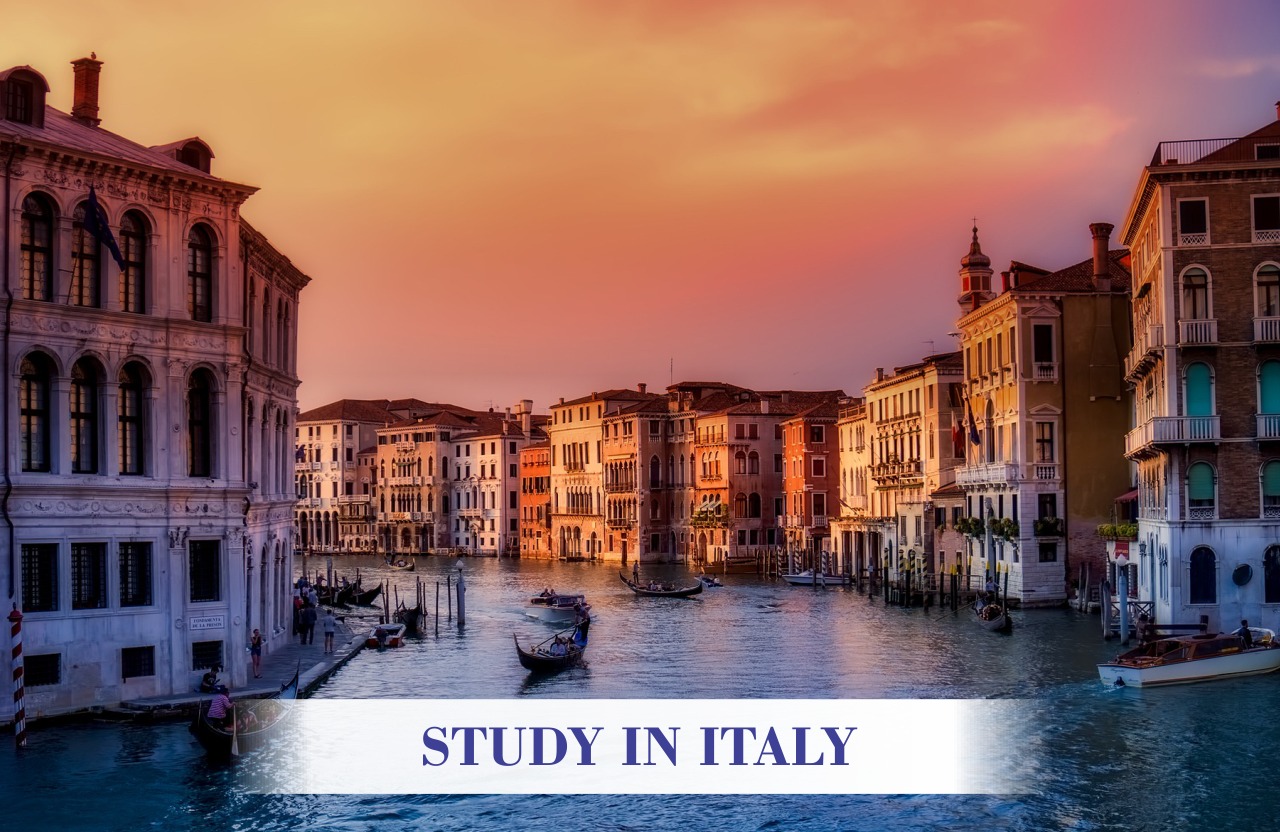Study in ITALY

Higher education in Italy is similar to the education system in India i.e, it entails a three-year bachelor’s degree (called laurea triennale). Master’s degrees last for two years and are called laurea magistrate. Italy houses around 90 universities and most of them are publicly funded. There are a number of specialized postgraduate centres and polytechnics. The grading system is credit based, wherein 25 hours are entitled to 1 credit. Italy has both- private and public education system. The programme for international students is coordinated by OECD. International Students can study for free at universities based on the university's decision.
Most popular courses in Italy comprise a variety of Masters programs. The fields of Science and Technology, Art and Design and Social studies have gained tremendous importance in recent years. Top universities in Italy include Politecnico di Milano and Scuola Normale Superiore di Pisa which rank 149th and 167th in the world respectively. Politecnico di Milano ranks higher for art and engineering courses while Scuola Normale Superiore di Pisa ranks globally for agriculture. The universities provide Masters degrees in Economics, Fashion Design and Architecture to a broad spectrum of students while also providing them an opportunity to work anywhere in the world with a degree from respectable universities across Italy.
While being a popular tourist destination, Italy is also a haven for businesses and private individuals looking for job opportunities. Being a major hubspot for Medium sized businesses Italy is a great choice to launch businesses in the service industry. There’s something for everyone, the conglomerates also have corporation set ups in the northern parts of Italy in the sectors of automotive production, fashion, tourism, and food. As Italian is the official language, expats who have a better fluency in Italian will tend to grow more connections and as a result have better advantages at the job front.
Italians as a group tend to value the little things in life. In some cities, the shops are shut down during lunch time to have a decent meal, socialize and maybe even take a nap. Italians as a group love to talk. If you ever sit down with a group of talkative Italians for a meal you might wind up realising that you just spent 6 hours just on one meal. The Immigration policies are fairly simple. To get a student visa for Italy you need an acceptance letter from a university that you get selected into. Once you have that, according to the duration of your course you can either apply for a Short stay visa (90 days) or a long stay visa (>90 days). When it comes to employment visas, the employer an individual works for ,presents a proposal for a residence contract to the Immigration Department and the work visa is granted accordingly. There are several types of visas for non-EU residents like: a temporary residence permit for a few years, an employment permit based on labor relation, an entrepreneurial permit for small businesses and a student visa for studying in Italy.
Most popular courses in Italy comprise a variety of Masters programs. The fields of Science and Technology, Art and Design and Social studies have gained tremendous importance in recent years. Top universities in Italy include Politecnico di Milano and Scuola Normale Superiore di Pisa which rank 149th and 167th in the world respectively. Politecnico di Milano ranks higher for art and engineering courses while Scuola Normale Superiore di Pisa ranks globally for agriculture. The universities provide Masters degrees in Economics, Fashion Design and Architecture to a broad spectrum of students while also providing them an opportunity to work anywhere in the world with a degree from respectable universities across Italy.
While being a popular tourist destination, Italy is also a haven for businesses and private individuals looking for job opportunities. Being a major hubspot for Medium sized businesses Italy is a great choice to launch businesses in the service industry. There’s something for everyone, the conglomerates also have corporation set ups in the northern parts of Italy in the sectors of automotive production, fashion, tourism, and food. As Italian is the official language, expats who have a better fluency in Italian will tend to grow more connections and as a result have better advantages at the job front.
Italians as a group tend to value the little things in life. In some cities, the shops are shut down during lunch time to have a decent meal, socialize and maybe even take a nap. Italians as a group love to talk. If you ever sit down with a group of talkative Italians for a meal you might wind up realising that you just spent 6 hours just on one meal. The Immigration policies are fairly simple. To get a student visa for Italy you need an acceptance letter from a university that you get selected into. Once you have that, according to the duration of your course you can either apply for a Short stay visa (90 days) or a long stay visa (>90 days). When it comes to employment visas, the employer an individual works for ,presents a proposal for a residence contract to the Immigration Department and the work visa is granted accordingly. There are several types of visas for non-EU residents like: a temporary residence permit for a few years, an employment permit based on labor relation, an entrepreneurial permit for small businesses and a student visa for studying in Italy.
